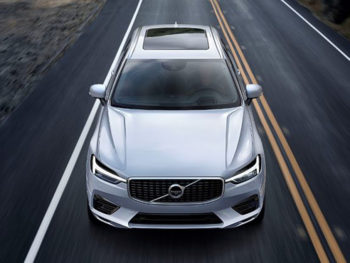Volvo to limit top speed on all new cars from 2020
Volvo is to impose a 180kph (112mph) maximum top speed on all new models from 2020 to help reduce the dangers from speeding.
Although the carmaker has long placed focus on passive and active safety measures, including as part of its Vision 2020 initiative that aims for no one to be killed or seriously injured in a new Volvo by 2020, it says research has revealed that speeding is one of three so-called ‘gaps’ in its ambition.
“Volvo is a leader in safety: we always have been and we always will be,” said Håkan Samuelsson, president and chief executive of Volvo Cars. “Because of our research, we know where the problem areas are when it comes to ending serious injuries and fatalities in our cars. And while a speed limitation is not a cure-all, it’s worth doing if we can even save one life.”
According to Jan Ivarsson, one of Volvo Cars’ leading safety experts, further action needs to be taken on speeding as drivers just don’t recognise the dangers involved.
“As humans, we all understand the dangers with snakes, spiders and heights. With speeds, not so much,” said Ivarsson. “People often drive too fast in a given traffic situation and have poor speed adaption in relation to that traffic situation and their own capabilities as a driver. We need to support better behaviour and help people realise and understand that speeding is dangerous.”
Apart from limiting top speeds, Volvo is also exploring the use of combined smart speed control and geofencing technology which could automatically limit speeds around vulnerable road user areas such as schools and hospitals.
Volvo’s research also found two other problem areas that need tackling under its Vision 2020 ambition, including driving under the influence of drugs/alcohol and driver distraction.
“We want to start a conversation about whether carmakers have the right or maybe even an obligation to install technology in cars that changes their driver’s behaviour, to tackle things such as speeding, intoxication or distraction,” added Samuelsson. “We don’t have a firm answer to this question, but believe we should take leadership in the discussion and be a pioneer.”
His comments come a fortnight after research published by the European Transport Safety Council (ETSC) showed that speeding remains a significant problem in many European countries, with the organisation highlighting that over-rideable Intelligent Speed Assistance (ISA) could help tackle the problem; the technology is one of 11 different systems on track to become mandatory from around 2022 in new cars, with measures to tackle distraction and alcohol interlock installation facilitation also to become mandatory.


